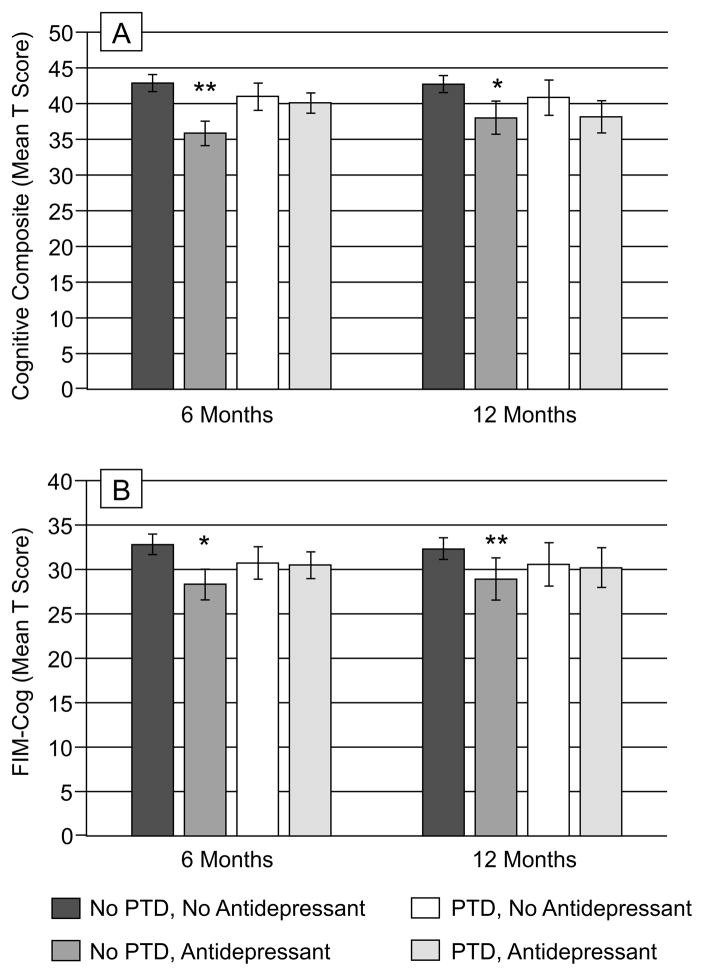Figure 1.
(A) Cognitive composite scores (T score on y-axis) are shown in groups of participants based on PTD and antidepressant use at 6 and 12 months post-injury. At 6 months, participants with no PTD, but who are on antidepressants perform worse on cognitive composite measures, compared to all other groups (**compared to no PTD, no antidepressant use, p=0.002, compared to PTD, no antidepressant use, p=0.033, compared to PTD, antidepressant use, p=0.036). At 12 months, within participants with no PTD, antidepressant use was associated with poorer scores on the overall composite (*p=0.027). (B) Functional cognition scores (mean score on y-axis) are shown in groups of participants based on PTD and antidepressant use at 6 and 12 months post-injury. At 6 and 12 months, participants with no PTD, but who are on antidepressant, have lower functional cognition compared to no PTD, no antidepressant use (*p<0.0001, **p=0.008).

